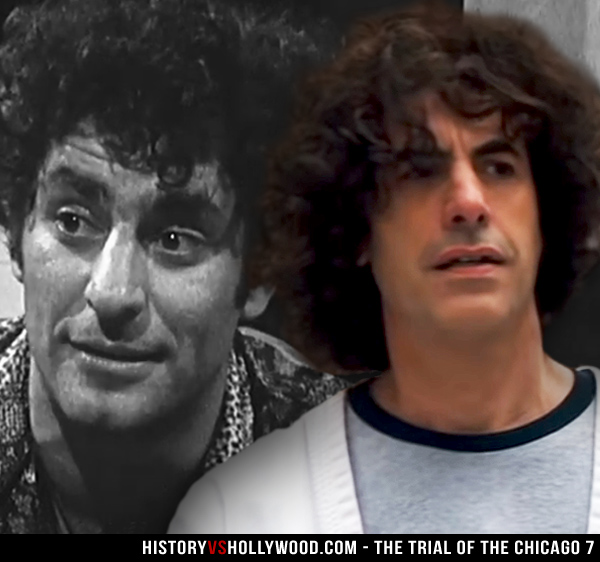
Like David Mamet, Aaron Sorkin is less a screenwriter than a songwriter. Sure, Goo goo j’goob doesn’t make a lick of sense, but its got a great beat.
So, too, does The Trial of the Chicago 7, Netflix’s latest pandemic entrée. Granted, our time in isolation has made us more welcoming than ever to visitors. And Sorkin, the mind behind The West Wing, has yet to see a trope he won’t hit on.
But the movie connects despite some sizable flaws, perhaps because of its underpinning message and unmistakable parallels between the politics of a half-century ago and today.
The film is based on the 1969 federal trial of seven men accused of inciting a riot at the 1968 Democratic National Convention in Chicago.
The film has taken its lumps for making the trial too theatrical. Rolling Stone railed, “The Trial of the Chicago 7 feels outright outlandish at times.”
Note to Rolling Stone: Look up the real trial. Defendant Bobby Seale really was bound and gagged at the trial. And unlike the film, which showed Seale as literal hostage once, the order stood for several days. A defense attorney stated, for the record, “This is no longer a court of order, Your Honor, this is a medieval torture chamber.”

No, the flaws of Chicago 7 are about storytelling. The trial was such a circus, the film needs less dramatic flare, more documentarian finesse. In a throwaway scene apparently meant to peacock, one defendant asks another if he knows what’s going on as lawyers huddle. “I haven’t known what’s been going on for years,” the other replies with a poignant sigh.
In another, a defendant says he is keeping a list of soldiers who died in Vietnam during the case, noting that “with the trial starting, it might get easy to forget who this is about.” He later hands the list to Tom Hayden (a terrific Eddie Redmayne), whose final words to the court are to read the casualty list.
Too bad the speech — and list — are pure fiction.
And while chameleon star Sacha Baron Cohen bears a strong resemblance to Abbie Hoffman, the Brit simply can’t get beyond a “pahk the cah” Northeastern accent, and it weaves like a drunk driver on a two-lane highway.

But it’s still worth the cost of admission, if only because it will nudge the occasional viewer to Wikipedia or YouTube for a remote-learning history lesson.
The film duly notes what became of the protesters, from Tom Hayden’s 5-term Senate run to Hoffman’s in 1989.
More importantly, Chicago 7 puts the upcoming presidential election into some much-needed context. As Sorkin does get spot on, the 60’s make these times look downright simple.
Back then, liberal voices got shot in the head for demanding to be heard.
In that sense, the election — like the sentiment of the Chicago 7, is already settled.
